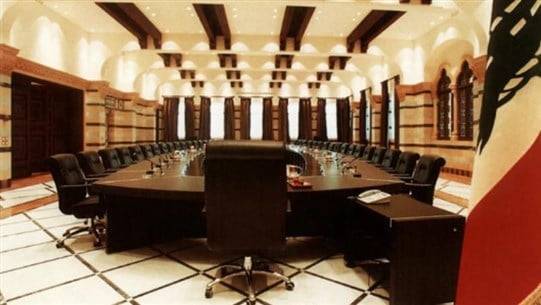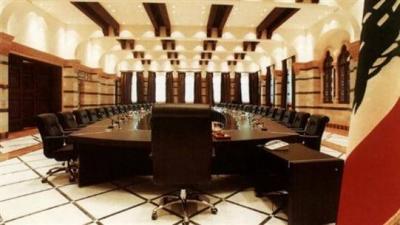Contrary to many impressions that prevailed yesterday morning that the governmental crisis was just hours away from resolution, well-informed political sources confirmed that "the complexities remain unchanged." They revealed that "the last hours of communications did not reach any positive outcome in finding a solution to prevent the continuation of the high ceilings set by President Michel Aoun, Deputy Gibran Bassil, and Prime Minister Najib Mikati." On the contrary, the signs that emerged from Mikati's visit to Baabda, followed by Bassil's remarks after the meeting of his parliamentary bloc, confirmed the occurrence of a new governmental setback after the mediation efforts led by Hezbollah and Major General Abbas Ibrahim were halted last week.
Sources involved in the negotiations disclosed that "Bassil insisted on his stance yesterday," noting that "the main issue at stake relates to the question of confidence." Mikati had asked President Aoun during the meeting whether his party would grant confidence to the government, to which Aoun responded that he could not guarantee that, effectively bringing the meeting to an end.
President Aoun had opened the door by stating that "applying a set of uniform criteria is the correct entry point to forming an effective government capable of managing the country's affairs," asserting that "solving the formation issue is very simple." He requested Prime Minister Mikati to ensure equality among all parties and to return in the evening (yesterday) to issue the decrees. However, contradictions continued about the reality of the ongoing situation. Bassil's statements in the afternoon confirmed that the last opportunities for forming a government were being wasted, decisively raising numerous questions about the outcome of the Aoun-Mikati meeting, concluding that it was "empty."
He believed that "a government lacking powers cannot exercise its authority except in a limited sense," pointing out that "the solution today lies in forming the government through agreement and cooperation between the President of the Republic and the appointed Prime Minister." He added, "They want us to grant confidence to the government, even though we are not convinced of its composition or its head, and without participating in it." He stressed that the problem lies not only in the composition but also in the necessity to agree on what the government will undertake, focusing on the cases of Central Bank Governor Riad Salameh and the head of the Supreme Judicial Council, Suhail Aboud.
The Prime Minister did not delay in denouncing the meeting; he quickly responded to Bassil through a statement issued by his media office expressing regret "for the emotional comments made by Bassil at a politically sensitive moment that requires cooperation rather than unfounded accusations and provocations." He considered that "the most appropriate course in this difficult situation is solidarity to ward off the imminent dangers facing the nation, along with cooperation among Members of Parliament, including Mr. Bassil, to elect a new president and restore matters to their democratic framework."
Mikati's response appeared to convey the most negative signal, stating that the priority today is to elect a new president, rejecting discussions about the fate of the government.




